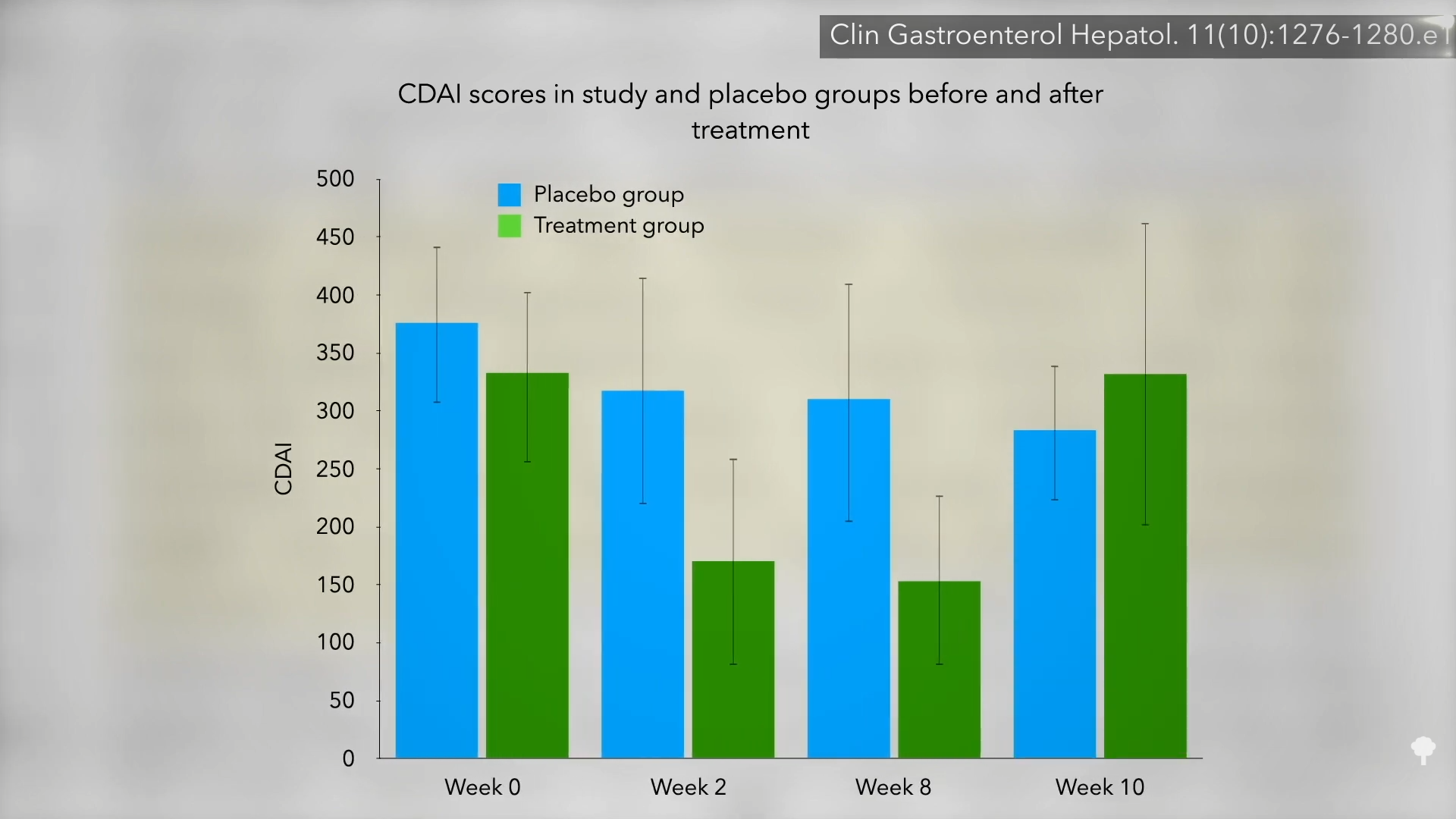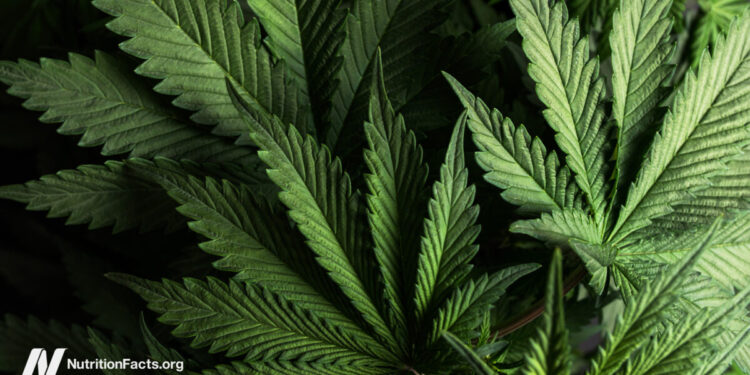Smoking hashish might assist with signs of inflammatory bowel illness (IBD) within the brief time period, however it could make the long-term prognosis worse.
As this research asks, “Medical Marijuana: A Panacea or Scourge?” For five,000 years, hashish “has been used all through the world medically, recreationally, and spiritually.” It was even prescribed by American physicians “for a plethora of indications” from the mid-Nineteenth century to the Nineteen Thirties, a incontrovertible fact that’s usually used by medical marijuana proponents as proof justifying the fashionable medical purposes.” However the area of old-timey drugs is “fraught with potions and natural cures,” to not point out bloodletting and different questionable and dangerous cures.
Skeptics criticize the medical marijuana motion because the “‘medical excuse marijuana’ motion,” insinuating that kids with epilepsy and the terminally unwell are being “used as a ‘Computer virus’ for the legalization of leisure hashish use” or to peddle “outlandish claims” about “miracle most cancers cures,” irritating researchers within the area who simply need to get on the science.
For instance, what in regards to the therapeutic use of hashish for inflammatory bowel illnesses like Crohn’s illness and ulcerative colitis? Typical therapies work primarily by suppressing the immune system to attempt to tamp down irritation. “Given the restricted remedy choices and identified adversarial unwanted side effects with power use” from these medicine, folks affected by these illnesses usually have to have infected sections of their bowels eliminated surgically, so it’s clear why there’s a lot curiosity in different approaches.
About one in six IBD sufferers who use marijuana say it helps with their signs, so researchers determined to place it to the take a look at. 13 sufferers with IBD have been given a 3rd of a pound of marijuana to smoke at their leisure over a interval of three months, and so they reported feeling considerably higher with “reported enchancment generally well being notion, social functioning, capability to work, bodily ache, and melancholy.” There wasn’t a management group, so it’s unknown if they’d have improved anyway or what position the placebo impact might have performed. It’s like a few of the research of hashish used for pediatric epilepsy that had response charges exceeding 30 % and a frequency reduce in half in a 3rd of the youngsters. Wonderful outcomes till you understand you may typically get equally superb responses from giving children nothing however a sugar capsule placebo, as seen under and at 2:21 in my video Friday Favorites: Hashish for Inflammatory Bowel Illness (IBD). That’s why it’s crucial to do randomized, double-blind, placebo-controlled trials, however there weren’t any on hashish and IBD till 2013.

For 21 sufferers with Crohn’s illness, nothing appeared to assist. So researchers randomized them to both smoke two joints a day of marijuana or a look-alike placebo. The outcomes? Ninety % of these within the hashish group bought higher, in comparison with solely 40 % within the placebo group. Proven under and at 3:11 in my video is a graph of their symptom scores. As you may see, there was no large change within the placebo group over the two-month research, however the hashish group reduce their signs by about half.

The researchers acknowledge that long-term hashish use just isn’t with out dangers, however it could be a cakewalk in comparison with the potential adversarial—and even life-threatening—unwanted side effects of a few of the extra highly effective typical therapies, so the research was heralded in a paper entitled “Excessive Hope for Medical Marijuana in Digestive Problems.”
The research was funded by a medical marijuana advocacy group, the principle provider within the nation, actually. So, expectations might have been positioned on the contributors about how a lot better they’d really feel—in different phrases, they could have been primed for the placebo impact. However the researchers managed for that, proper? These getting the actual hashish did considerably higher than these randomized to get the placebo. However the level of a placebo is that it’s indistinguishable from the actual factor, so the contributors don’t know which group they’re in—the management group or the therapy group. How can that be completed with a psychoactive drug? It might probably’t, which is the issue. The researchers tried to cover which group contributors have been in by solely recruiting sufferers who had by no means tried hashish earlier than within the hopes that they wouldn’t discover placebo pot, however, unsurprisingly, most of them did. So, we’re mainly left with one other unblinded research. The researchers requested a bunch of subjective questions, like “How are you feeling?” and those that just about knew they have been taking the drug stated they have been feeling higher.
There have been no important adjustments in goal lab values, like CRP, an indication of irritation, so maybe the “hashish might merely be masking signs with out affecting intestinal irritation.” One other indicator that it might not be affecting the course of the illness itself is how rapidly the signs rebound. Two weeks after the research ended, these within the hashish group have been proper again to the place they began, as proven right here (see week 10) and at 5:05 in my video.

So, “there was no distinction in goal inflammatory markers to point illness modification. Given the speedy rebound…to pretreatment ranges after the 2-week washout interval, it appears extra believable that hashish ameliorated the signs of Crohn’s illness, somewhat than truly modulating the illness.” That could be, however the signs are horrible. A discount in ache is a discount in ache. Certainly, “from the viewpoint of the sufferers, a marked symptomatic enchancment and skill to renew regular life just isn’t trivial, even when irritation persists.” After all, what if hashish someway makes the illness worse in the long term?
A survey research revealed the next yr discovered that hashish supplied the identical instant symptomatic reduction however was related to a worse illness prognosis over time. Sufferers with IBD reported that hashish improved their ache, cramping, and diarrhea, however use for greater than six months by Crohn’s sufferers gave the impression to be a robust predictor of them ending up in surgical procedure; they’d 5 instances the percentages of going beneath the knife. There are two potential explanations for this: It’s fairly potential that the elevated illness severity led to the hashish use and never the opposite approach round. The choice clarification: “Hashish use might worsen the prognosis of IBD, resulting in higher surgical procedures and hospitalizations.”
Because of this we’d like potential medical trials the place individuals are adopted over time to see which got here first. Till then, maybe we should always think about hashish use for IBD as “doubtlessly dangerous.” Not simply to err on the facet of warning, however as a result of there was a research on hepatitis C sufferers that discovered that every day hashish use was related to almost seven instances the percentages of worse liver fibrosis, which is like scar tissue. If hashish actually does make fibrosis worse, that will clarify why hashish customers with IBD could also be extra more likely to require surgical procedure.








Discussion about this post